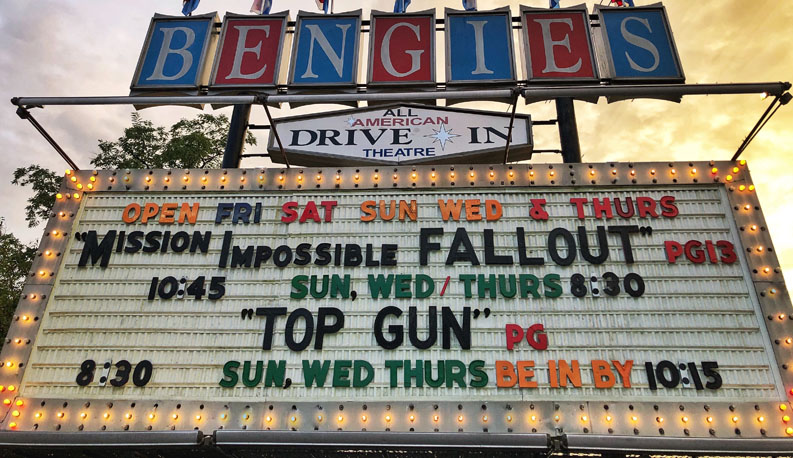
Drive-in theaters were something of a regional and seasonal backwater until the pandemic made watching entertainment from inside a car cool again.
Instances where drive-in initiatives attract throngs of consumers gives hope that cinema will snap back once the coronavirus disappears. Music concerts and esports video game competitions have even embraced the outdoor drive-in model during the shelter-in-place mandate that shut down indoor gatherings.
But there is no way to sugar coat it: the “hardtops”/mainstream theaters are in precarious financial condition and need to pull in paying audience soon. That will depend on medicine, government regulators and consumer behavior. In a worrisome development, Hollywood’s major studios pushed back releases from October and November into next year, because theaters in big cities remain closed.
Meanwhile, the drive-in cinema sector carried on without closures and operated without a flow of fresh Hollywood blockbusters. The major movie studios shut off their spigot withholding big movies because mainstream indoor theaters were closed.
That circumstance made for some minor drive-in hits distributed by independents.
IFC Films collected $1.6 million over summer for horror thriller “The Rental”—one of the few new releases and it got just so-so reviews from critics. South Korean import “Peninsula”—a zombie horror film—pulled in $1 million in summer for small distributor Well Go USA.
These are seen as financial successes because, with the dearth of competition, little was spent on marketing.
Most outdoor theaters have multiscreens (two and three are typical). Filling out drive-in presentations were rereleases of past blockbusters such as “Back to the Future” (1985); “Goonies” (1985), “Karate Kid” (1984) and “Jurassic Park” (1993).
Move theater trade group NATO counted 321 drive-in locations in the U.S. in early 2020, versus 5,477 indoor theaters. So, drive-ins are clearly a niche, but stable in recent years, though down hundreds of locations from prior decades.
There is debate how to interpret the slow cinema reopening for regular enclosed theaters. Warner Bros. sci-fi thriller “Tenet” was the first big-budget movie to hit cinemas, generating $20.2 million in its opening four-day weekend domestically Sept 4-6. That’s without major-city cinemas that are still closed in New York City, Los Angeles and elsewhere; AMC Theatres described itself as 70% open for the “Tenet” premiere.
Some pundits brand that “Tenet” opening as poor, boding poorly for cinemas long-term. But a stock analyst at securities firm B. Riley was encouraged that a sizeable audience shook off virus fears to see “Tenet” in indoor theaters.
And “Tenet” movie performed better overseas, where more movie theaters have re-opened, showing consumers have re-embraced out-of-home again. “Tenet” has grossed over $240 million worldwide, which is okay given the cinema patchwork globally due to the virus. “Tenet” reportedly cost $200 million to make, and–now that it clears the cinema window—will cash in downstream on windows like TV.
There’s more bad news for cinema in that Walt Disney Studio just pushed back cinema premieres for high-profile films, notably “Black Widow” starring Scarlett Johansson. That glossy, big budget films is pushed back from Nov. 6, 2020 to May 2021.
Related content:
Leave a Reply